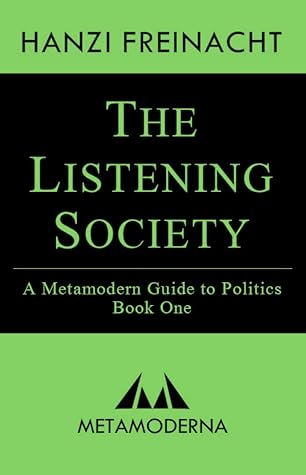More on this book
Community
Kindle Notes & Highlights
Read between
March 13 - April 2, 2018
State is generally developed by positive rewards from your environments (e.g. successfully accomplishing work, relationships, love and sex) and things that benefit health and physiological well-being.
High state does not mean high complexity of thought structures
The conventional way of seeing such exceptional states is to give them lower ontological status (that they are seen as “less real” than the reality of everyday life). Everyday life is taken to be the “really real” reality, and all else to be dreams, hallucinations or fantasies. What this view tends to miss is that mental life is never a “correct representation” of some objective reality.
Sensitive people tend to be, I would argue, both more vulnerable to the adversities of life and more in tune with the profound beauty of existence.
there is a kind of dialectic between the lower and the higher states: Lower states can be instrumental to the acquisition of higher ones. You will find similar ideas in the contemplative traditions: Jesus meets the devil while spending forty days in the desert; you have the “dark night of the soul” as a recognized state in contemplative Christianity; and Tibetan Buddhism is full of monsters you must face with equanimity to realize they were really aspects of your own empty, luminous consciousness all along.[138]
each person can hardly know her own state, how can we be expected to build a reliable community upon not only our own state, but the states of a whole group of people?
They insist upon displaying behaviors that indicate high inner states; hence that strange stare.
A possible antidote to this social-psychological malady might be to democratize spirituality; to make it more participatory, transparent and based on measurable results. Such attempts are being made in and around the Burning Man festival culture, and notably in the Syntheist (“religious atheist”) movement which recently emerged in Stockholm—and some interesting prospects along these lines have been brought up by public intellectuals like Sam Harris (in his 2014 book Waking Up, Harris, a renowned critic of all things religious, makes his case for a scientifically supported exploration of
...more
depth is a person’s innermost recognition of the greatness and/or seriousness of reality.
“To live a life that serves love in all forms is what is of ultimate significance.”
to manifest divinity in the world, to find radical acceptance, to serve the becoming of the most profound possible unity and multiplicity, to surrender fully and without compromise to God or existence, to “be” wordless emptiness and recognize the pristine meaninglessness of the ultimate truth.
I think "to nurture and protect the earths thin layer of fertile soil" is a better and less narcissistic answer.
More likely, modern cultures and indigenous ones are at comparable levels of depth in their population averages.
Low or medium depth psychiatrists generally have no conception about what these people are going through. Ideally, therapists and psychiatrists should out-depth their patients, but unfortunately that is quite difficult to achieve.
Broken and crazy people, for all their limitations, often live in greater worlds; they have walked to hell and back. A lot of them just stumbled on their way back.
Beauty, in this sense, is a kind of recognition. We recognize things such as harmony, balance, proportionality, contrast, pattern, variation, rhythm, repetition; aspects of the world that we spontaneously seem to appreciate.
In a world of misery and evil, at least there is the truth.
fact, there tends to be lingering pre-modern irrationalities and beliefs that disrespect any honest search for truth, often supported by explicit anti-intellectualism.
our scientifically inspired mainstream society tends to instrumentalize science and knowledge to an excessive degree, reframing it as “academic achievement”.
The spiritual meaning of science, of knowingness, is subdued to grosser human needs, such as acknowledgment, status, accomplishme...
This highlight has been truncated due to consecutive passage length restrictions.
On the other hand, when we are stuck in social settings or relationships in which our inner depth—light or dark—are not honored and included, we feel that we are unable to act upon our most profound impulses and motives.
As I see it, what the wisdom people are sensing is the importance of seeing inner dimensions of people and society and the possibility of an active and deliberate development of these.
Fischer’s own suggestion is to see wisdom as fundamental and general insights about how to live a good life.
Wisdom is great depth, plain and simple.
For all its weaknesses, the Spiral Dynamics model catches something vital.
The effective value meme is an overall pattern of the mind; it is an equilibrium upon which one’s values and worldview tend to stabilize, setting the framework for the political behavior of a citizen.
We live, essentially, in a retarded world. Our value systems do not correspond to the society we live in.
And this is the issue of our age: to develop the political psychology of the world population. Unfortunately, stimulating such political-psychological development is an enormously tricky matter.
Your effective value meme is a kind of average between your complexity, code, state and depth. It is called “effective” value meme because people tend to have an overall pattern of how they function in society even if they cannot easily be squeezed into one of Beck and Cowan’s vMemes; hence they are “in effect” at one value meme, even if they may differ in one or more regards (for instance having lower complexity or greater depth).
Each of the four dimensions has its kind of width.
Stage has IQ and other measures of cognitive capacity.
In code, it’s how much and how high quality kno...
This highlight has been truncated due to consecutive passage length restrictions.


